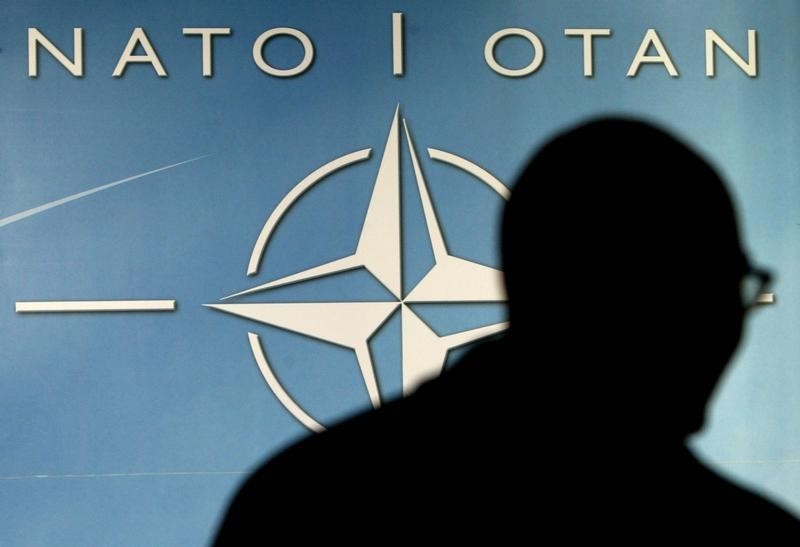* NATO, EU mission to help target people-smugglers in Aegean
* Ships to work with Turkish and Greek coastguards
* Plan responds to surprise German-Turkish request
(Updates with Britain's defence minister, NATO chief)
By Robin Emmott and Phil Stewart
BRUSSELS, Feb 11 (Reuters) - NATO ships are on their way to
the Aegean Sea to help Turkey and Greece crack down on criminal
networks smuggling refugees into Europe, the alliance's top
commander said on Thursday.
Hours after NATO defence ministers agreed to use their
maritime force in the eastern Mediterranean to help combat
traffickers, Supreme Allied Commander Gen. Philip Breedlove said
he was working quickly to design the mission.
"We are sailing the ships in the appropriate direction,"
Breedlove told a news conference, and the mission plan would be
refined during the time they were en route. "That's about 24
hours," he said.
The plan, which was first raised only on Monday by Germany
and Turkey, took NATO by surprise and is aimed at helping the
continent tackle its worst migration crisis since World War Two.
More than a million asylum-seekers arrived last year.
Unlike the EU's maritime mission off the Italian coast,
which brings rescued migrants to Europe's shores, NATO will
return migrants to Turkey even if they are picked up in Greek
waters.
Britain's defence minister said that marked a significant
change in policy. "They won't be taken to Greece and that's a
crucial difference," Michael Fallon told reporters.
NATO will also monitor the Turkey-Syria land border for
people-smugglers, said NATO Secretary-General Jens Stoltenberg.
Although the plan is still to be detailed by NATO generals,
the allies are likely to use the ships to work with Turkish and
Greek coastguards and the European Union border agency Frontex.
"There is now a criminal syndicate that is exploiting these
poor people and this is an organised smuggling operation," U.S.
Secretary of Defense Ash Carter told reporters.
"Targeting that is the way that the greatest effect can be
had ... That is the principal intent of this," Carter said.
The numbers of people fleeing war and failing states, mainly
in the Middle East and North Africa, show little sign of
falling, despite winter weather that makes sea crossings even
more perilous.
A 3 billion euro ($3.4 billion) deal between the EU and
Turkey to stem the flows has yet to have a big impact.
SEEKING SHIPS
Germany said it would take part in the NATO mission along
with Greece and Turkey, while the United States, NATO's most
powerful member, said it fully supported the plan.
The alliance's so-called Standing NATO Maritime Group Two
has five ships near Cyprus, led by Germany and with vessels
from Canada, Italy, Greece and Turkey. Breedlove said NATO would
need allies to contribute to sustain the mission over time.
Denmark is expected to offer a ship, according to a German
government source. The Netherlands may also contribute.
"It is important that we now act quickly," German Defence
Minister Ursula von der Leyen said.
Intelligence gathered about people-smugglers will be handed
to Turkish coastguards to allow them to combat the traffickers
more effectively, rather than having NATO act directly against
the criminals, diplomats said.
Greek and Turkish ships will remain in their respective
territorial waters, given sensitivities between the two
countries.
NATO and the EU are eager to avoid the impression that the
28-nation military alliance is now tasked to stop refugees or
treat them as a threat.
"This is not about stopping or pushing back refugee boats,"
Stoltenberg said.
($1 = 0.8837 euros)
